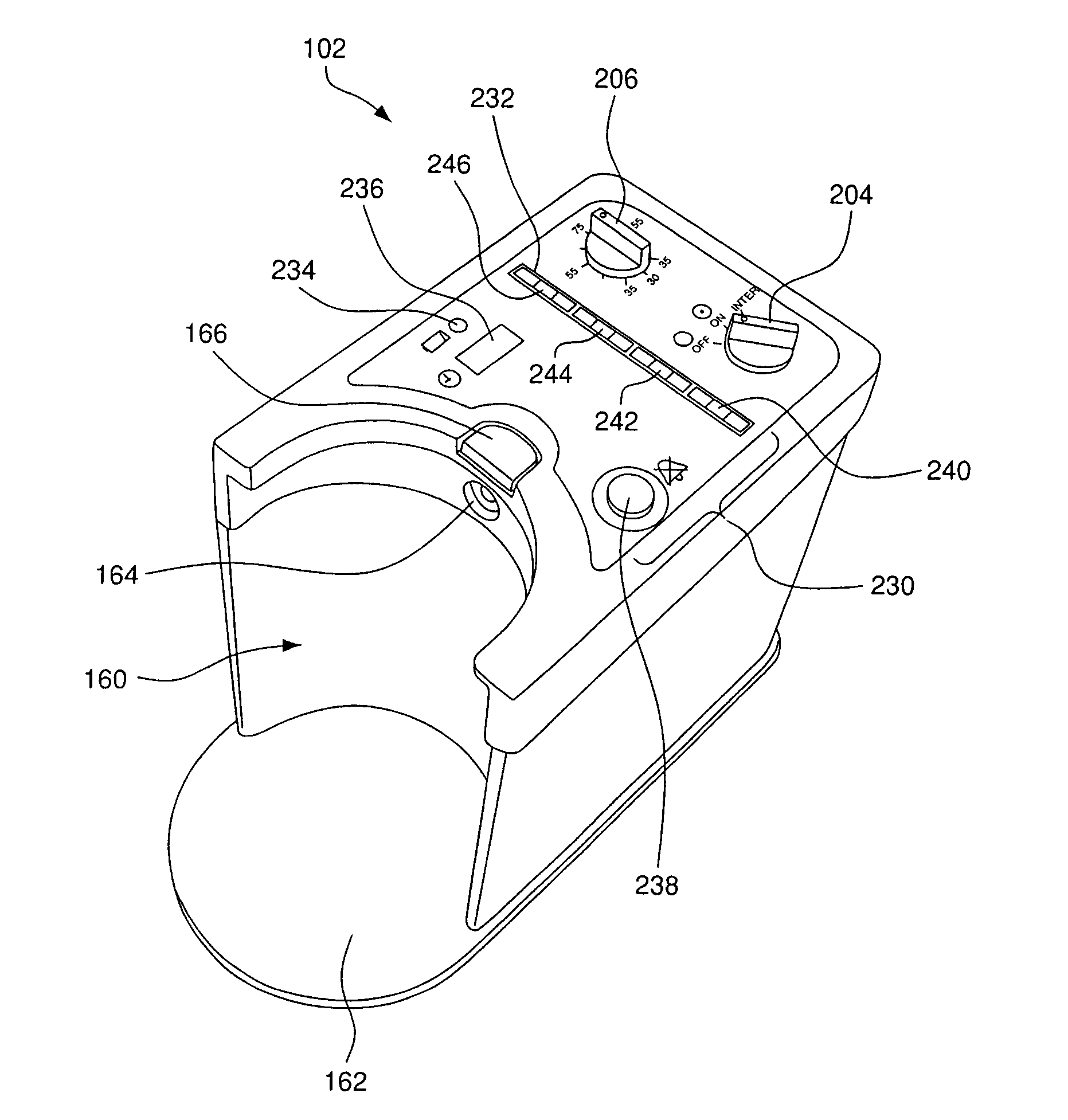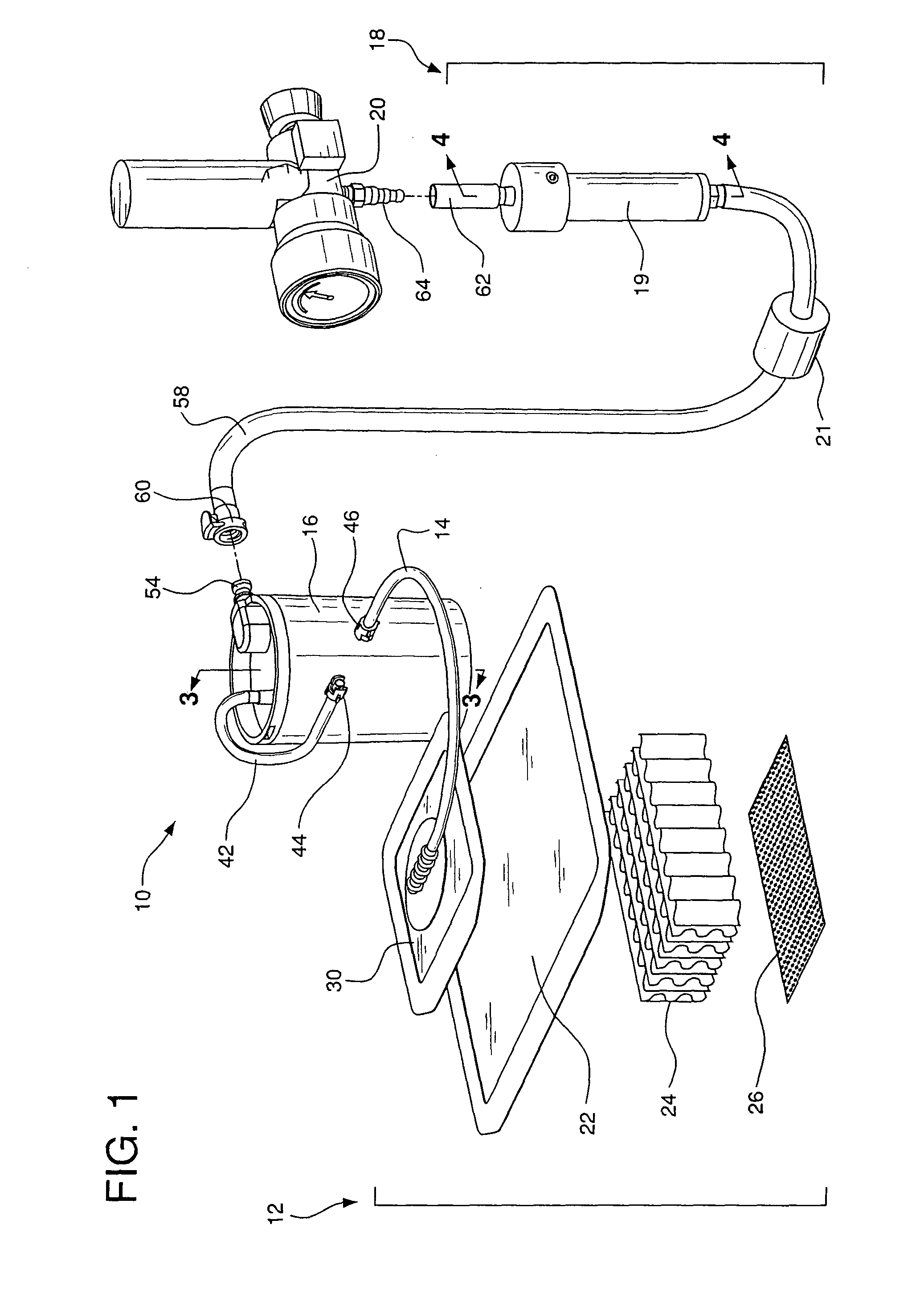Pump system for negative pressure wound therapy
a pressure pump and negative pressure technology, applied in the field of wound treatment, can solve the problems of loss of suction to the wound, leakage or blockage of the system, and the airtight seal did not provide any warning if the system developed a leakage or blockage, so as to reduce the likelihood of an erroneous indication of a full canister, prevent the drying of wound exudate, and reduce the tendency of condensate droplets to form.
- Summary
- Abstract
- Description
- Claims
- Application Information
AI Technical Summary
Benefits of technology
Problems solved by technology
Method used
Image
Examples
Embodiment Construction
[0047]FIG. 1 shows an embodiment of a system (10) for negative pressure (suction) wound therapy. The system (10) includes a wound dressing (12), a flow monitoring device (18), and a suction regulator (20) for regulating vacuum from a stationary suction source. FIG. 5A shows an alternate embodiment of a system (10) for negative pressure wound therapy where a portable suction pump unit (102) is used in place of the suction regulator (20) and the stationary suction source.
Wound Dressing
[0048]The wound dressing (12) typically includes a primary wound cover (22) and wound packing material (24), and may include a special wound contact layer (26). A suction tube (14) communicates with the wound packing material (24) by running under the edge of the wound cover (22), by extending through the wound cover (22), or by terminating outside of the wound cover (22) and communicating with a nozzle or slot in the wound cover (22). Various wound dressings (12) may be used comprising a wide variety of...
PUM
 Login to View More
Login to View More Abstract
Description
Claims
Application Information
 Login to View More
Login to View More - R&D
- Intellectual Property
- Life Sciences
- Materials
- Tech Scout
- Unparalleled Data Quality
- Higher Quality Content
- 60% Fewer Hallucinations
Browse by: Latest US Patents, China's latest patents, Technical Efficacy Thesaurus, Application Domain, Technology Topic, Popular Technical Reports.
© 2025 PatSnap. All rights reserved.Legal|Privacy policy|Modern Slavery Act Transparency Statement|Sitemap|About US| Contact US: help@patsnap.com



